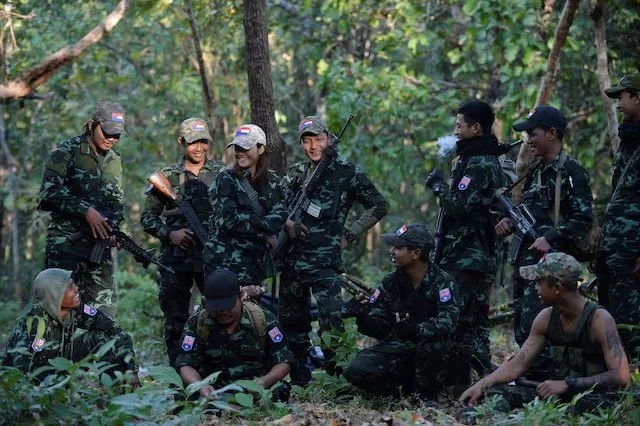Myanmar’s Military Junta Begins Census
A census enumerator prepares to collect information from the public in Naypyidaw, Myanmar. Photo: AP News/Aung Shine Aoo
Despite the raging civil war within the country, on October 1st, Myanmar’s military junta began conducting a nationwide census. While nominally conducted in preparation for a planned national election in 2025, fears that the junta may use the information collected to persecute its opponents have worried the civilian population and international observers.
The last national census happened in 2014 when Myanmar’s political leadership enjoyed temporary relative autonomy from the military. After 50 years of military rule, the military junta (Tatmadaw) voluntarily partially relinquished power in 2011 in favor of a democratically elected civilian government and released prominent pro-democracy activist Ann Sung Suu Kyi. However, the Tatmadaw still held 25% of the seats in Myanmar’s parliament and carried out a genocide of the Rohingya minority largely unabated by the civilian government.
The situation changed when Suu Kyi won the November 2020 election by a landslide. On 1 Feb. 2021, Suu Kyi and other members of her party were detained, a state of national emergency was declared, and Tatmadaw General Min Aung Hlaing took control of the legislature. After pro-democracy protests faced violent crackdowns, leaving hundreds dead, protestors rallied around the National Unity Government (NUG) composed of pre-coup politicians and took up arms. Joining forces with several of the armed ethnic militias present in the country, they recaptured around 60% of Myanmar’s territory, though the Tatmadaw retained control over the major population centers.
Protesters turned guerilla fighters against the Tatmadaw. Photo: Reuters/Stringer
Popular sentiment is also largely against the Tatmadaw. Civilians evaded census reporting due to worry about the junta having their personal history on hand, which they could use to punish participants in the 2021 protests or conscript able men. Ethnic militias allied with the NUG, such as the Chin Brotherhood Alliance and the Dawei Defense Team, threatened action against Tatmadaw officials conducting the survey.
The Tatmadaw’s stated reason for the census – hosting an election in 2025 – seems increasingly unlikely as their grip on Myanmar wanes. It has been battered by the opposition taking strategically important border towns, striking the capital Naypyidaw, and high rates of defections and surrender. It’s also lost diplomatic support, with Russia focusing resources on its war in Ukraine and China’s growing frustration with them scamming Chinese citizens as a source of wartime funds. Regardless, as the Tatmadaw becomes increasingly desperate to retain a hold over Myanmar, the future of the country still hangs in the balance.


